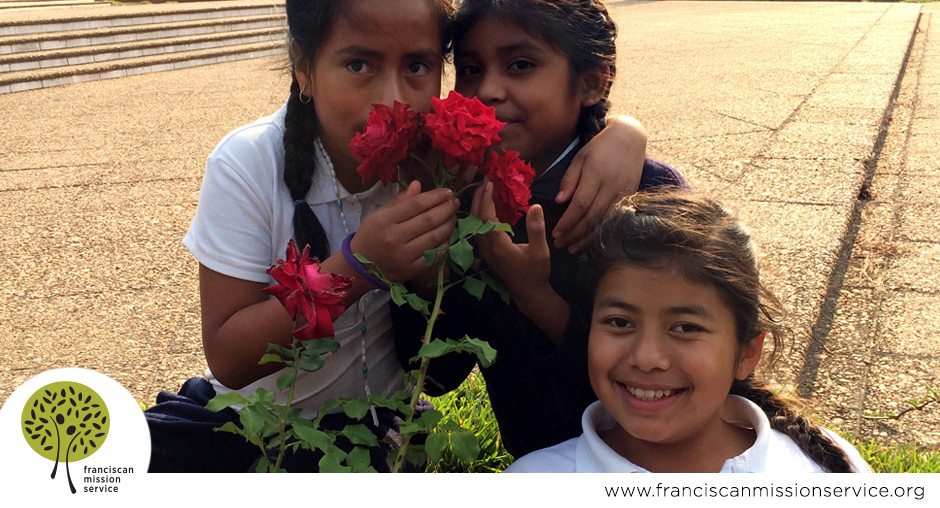“Hermosa”

Editor’s note: Missioner Erin McHugh reflects on moments during teaching that have brought up questions for her about privilege, beauty, and unjust societal standards.
I recently had a lesson in my English class about beauty and I asked my students, “How do you define beauty? How would you describe a beautiful person?” All the girls in my class came to the same conclusion: a beautiful person has white skin, blue or green eyes, long brown or blonde curly hair, and is tall and skinny. I looked around, realizing that didn’t describe anyone in the classroom—except me. I felt very uncomfortable and quickly turned the lesson to empower them to see their own beauty.
Later in the afternoon, I was coloring with some of the younger girls and I noticed that they were using a pale crayon to color skin. I asked them why they didn’t want to use the brown color to match their own skin, but they replied, “No, the pale is more beautiful.”
The children are often commenting about my skin color, my green eyes, and my hair. They tell me, “You are so beautiful—I wish I had your color skin and eyes. I wish I had hair like yours!” I always just turn it around and tell them I love their beautiful long hair, brown eyes, and brown skin.
Reflecting on these experiences, I have been pondering the following questions: Why is it that white skin color is considered the most beautiful? Why is it that even in other countries there are white, tall, skinny models on billboards and magazines? Why do we still focus so much on outer beauty and not inner beauty? How do I—as a white woman—empower these girls to see their own beauty inside and out?
I have also found myself struggling with the importance of English. I am realizing more and more that, in order to break out of the cycle of poverty, my students need to know English.
The high school girls recently shadowed a call center in Guatemala City as a potential job for when they graduate from Valley. They came back from the visit very excited and more eager than usual to learn English. I remember them running up to me, saying, “We need to practice our English! You need to start having English-only conversations with us during lunch and dinner.” I, of course, agreed but was a little confused for their sudden increase in desire to learn English, and then it dawned on me that they needed to speak English to work at the call center. The girls informed me that if they spoke English, they could get paid three times the amount of money of someone who doesn’t know English.
Once again, my emotions were torn: I was eager to help them in any way I could, but I was also saddened that they had to master a foreign language to be able to get a high-paying job. I was once again filled with questions: How did English become a universal/business language? Why do we not offer well paying jobs for people in their native language? Why do we expect everyone to learn English? What will happen to the girls in my class who can’t master English? How can I best support my students and help them to have the best opportunities for when they leave Valley?
Being on mission has opened my eyes to how privileged I am. I have seen how, as a white, English-speaking person, I have an up, no matter how many times I try to just be with the people I serve alongside. It makes me mad and uncomfortable, since the girls I teach are so intelligent, hard-working, and beautiful young women. It is not fair, and I wish I could do something, but all I can do is be aware of my privilege and do everything I can to not take advantage of it. I strive to humble myself every day, empower the girls I teach, and live in solidarity with them, hoping they will be given the opportunities they deserve.
Reflection question: How can you strive to stand against unjust societal standards in your own life?
Tagged in:

